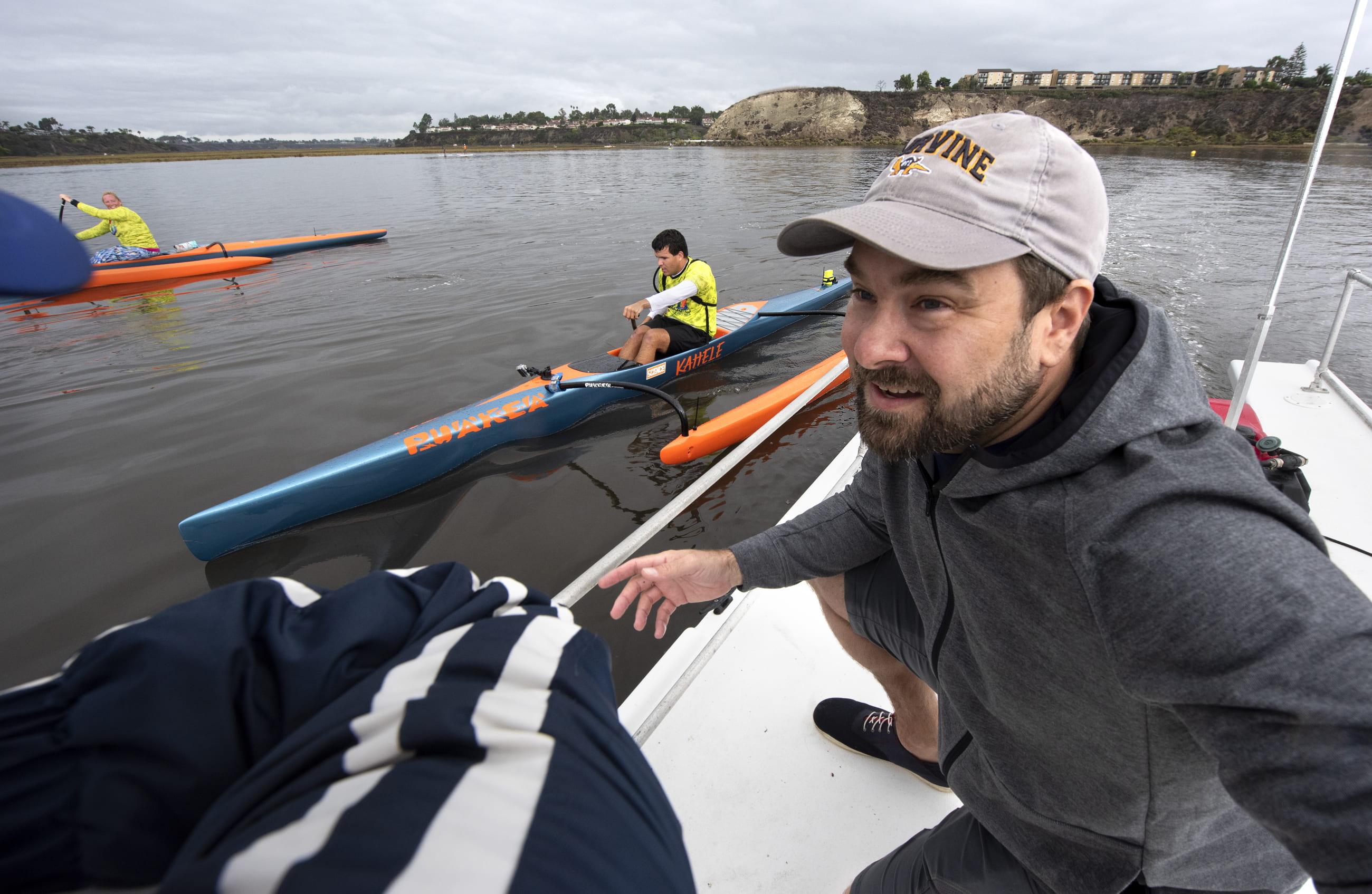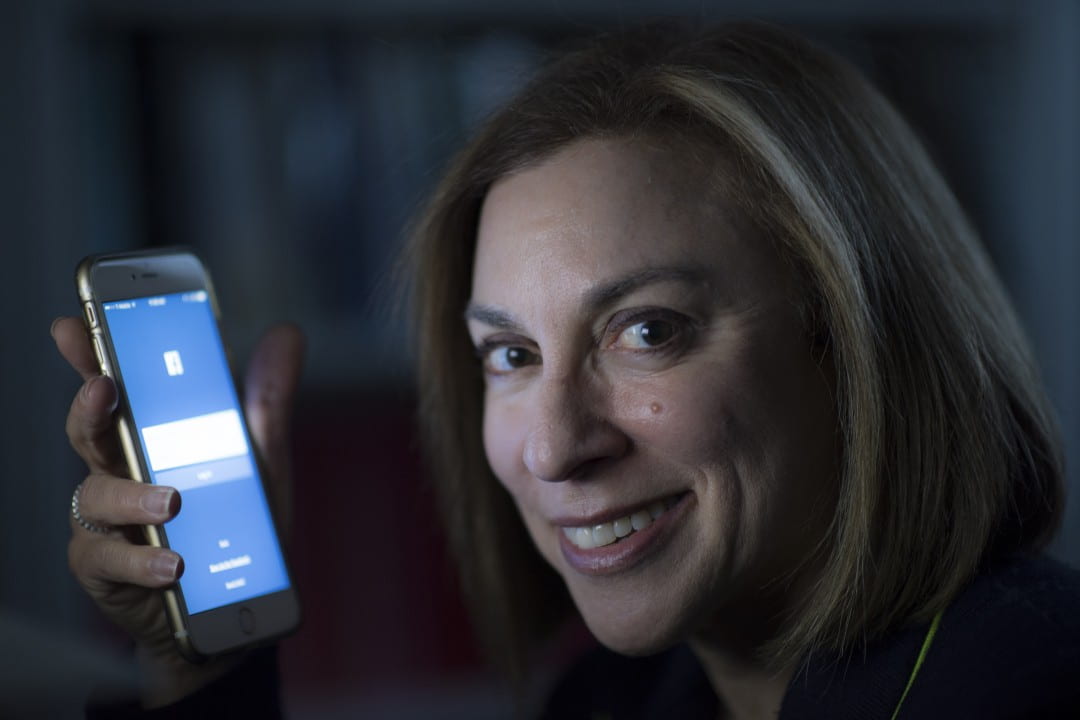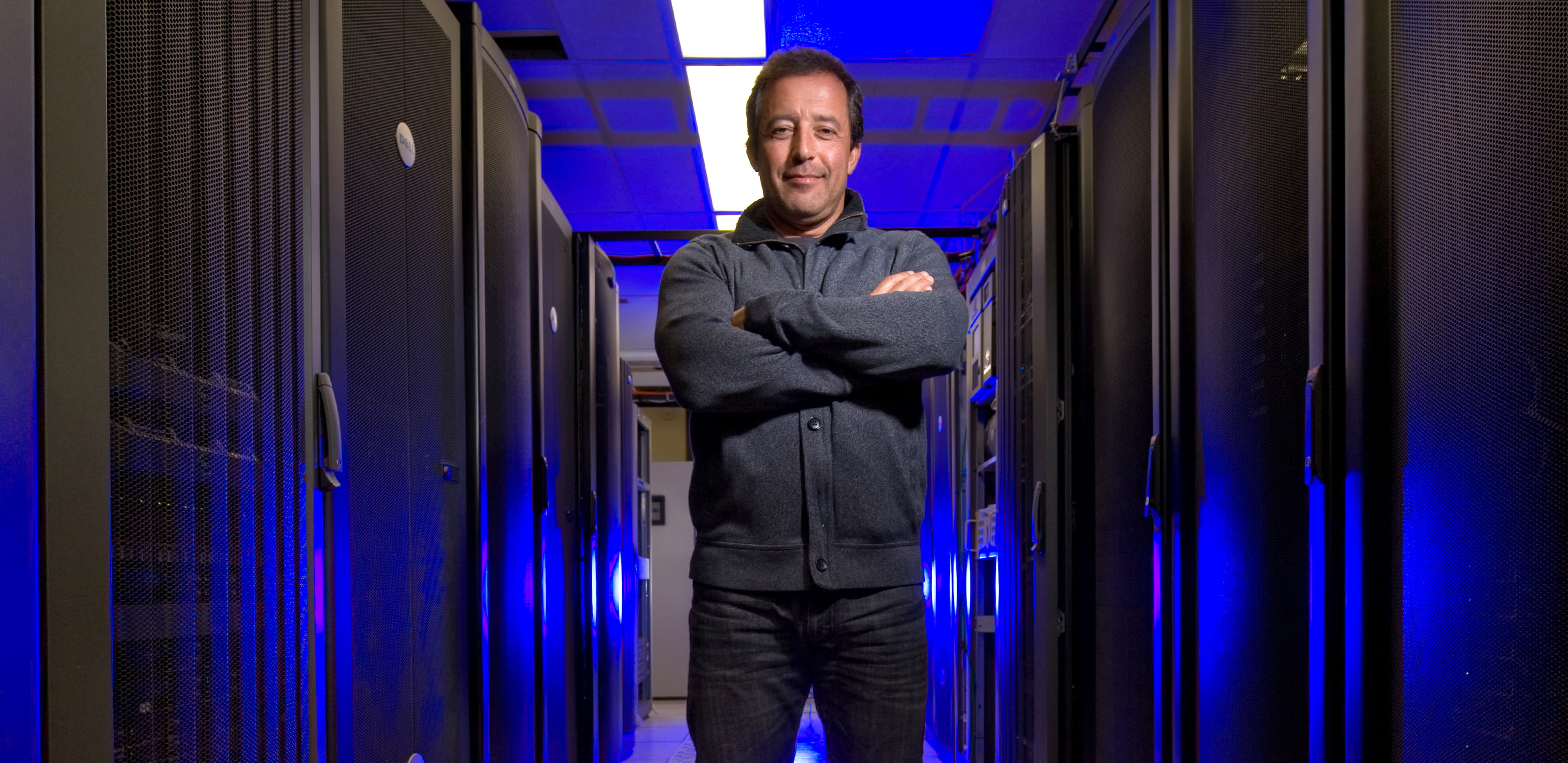Paddling toward a more accessible future
Mark Baldwin’s hands-on research is helping visually impaired rowers enjoy their sport in new and exciting ways

It was Andrew Skvarla’s big day. An accomplished athlete, he had been paddling kayaks and canoes since he was 16 years old, and he had never let anything get in his way – not even his complete visual loss. But this rainy October morning was different. On the choppy waters of the Upper Newport Bay, he raced in a remote-controlled outrigger canoe by himself for the first time.
The steering system technology allowing Skvarla to pull off his solo feat was created and developed by Mark Baldwin, an informatics Ph.D. student at UCI, and it’s allowing members of the Makapo Aquatics Project – like Skvarla – to experience rowing in new and exciting ways.
A former software consultant for 10 years before arriving at UCI, Baldwin uses hands-on, prototype-driven techniques to conduct research on assistive technology. His aim is to create devices to help people with disabilities, specifically those with visual impairments.
“The steering system, just like Andrew, performed well,” says RJ De Rama, executive director of the Makapo Aquatics Project. “When he crossed the finish line, there wasn’t a person around who didn’t have a big smile on their face. We were just so stoked that it went so well and that we helped Andrew become the first fully blind person to complete a race on a remote-controlled canoe.”
Baldwin partnered with the Makapo Aquatics Project which sets out to help visually impaired individuals become more active and independent. Together, they’ve been testing and improving upon a remote control device for outrigger canoes so that the family or friends can steer them from another boat, similar to how you manage a remote control car.
“I think the most memorable moment for me so far has been the encouragement and enthusiasm of the paddling community,” says Baldwin. “At the starting line, when the race director announced our project and Andrew, everyone there was enthusiastically cheering. And even throughout the race, we had numerous paddlers who cheered Andrew on.”
Making an accessible tangible desktop
Building such prototypes for his research endeavors has distinguished Baldwin in his doctoral quest. In this regard, he shares a similar approach to his advisor, Gillian Hayes, the Robert A. & Barbara L. Kleist Chair in Informatics at UCI, who also explores the real-world impact of her research projects.
As part of his Ph.D. project, Baldwin has been working to create a tangible desktop that facilitates computer use for the visually impaired. He’s focusing on creating desktop prototypes that are economically affordable so that they can be used by a broader audience, not just those who can pay $3,000-$10,000 for existing software programs or braille displays on their keyboards. He uses low-cost technology, like 3D printing, to create his prototypes and products.
Baldwin’s motivation is to see how his research and innovations can have a lasting, life-long impact on the communities who have been ignored and underserved by a technology-driven world that often advances without them in mind. He admits this has given his research efforts a greater sense of purpose – it’s not only about creating technological advances, but about advancing technology for all, including those with disabilities.
“The disability community is frequently overlooked in our society, so I think the investment in our success by the paddling community, and others, is a testament to the value of designing and developing assistive technology in diverse collaborative environments,” he says. “We learned from the community how to get Andrew on the water and the community learned that Andrew, and any other blind paddler, belongs there.”









